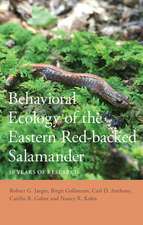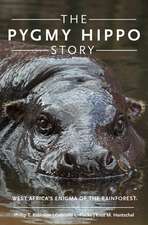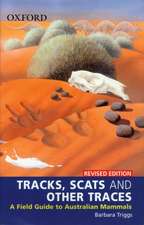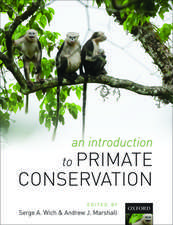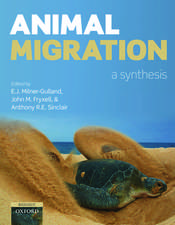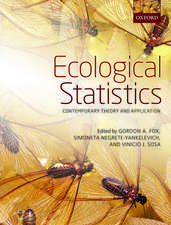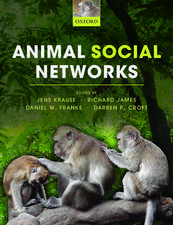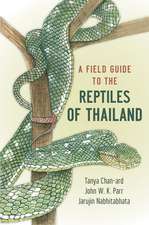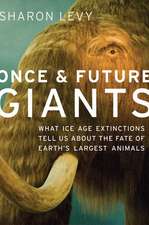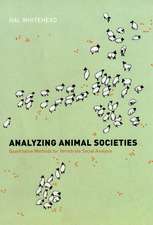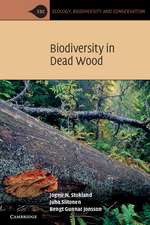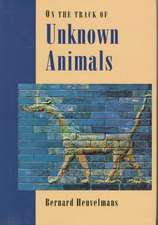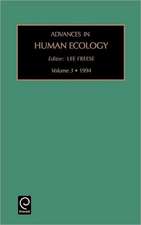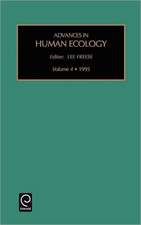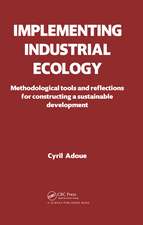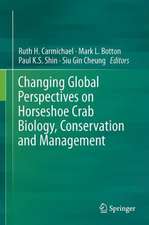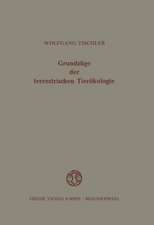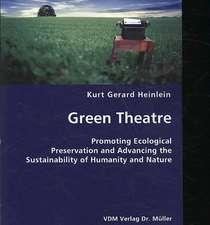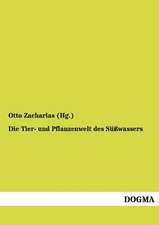Human-Wildlife Conflict: Complexity in the Marine Environment
Editat de Megan Draheim, Francine Madden, Julie-Beth McCarthy, Chris Parsonsen Limba Engleză Paperback – 30 iul 2015
| Toate formatele și edițiile | Preț | Express |
|---|---|---|
| Paperback (1) | 399.57 lei 31-38 zile | +72.56 lei 7-13 zile |
| OUP OXFORD – 30 iul 2015 | 399.57 lei 31-38 zile | +72.56 lei 7-13 zile |
| Hardback (1) | 819.03 lei 31-38 zile | |
| OUP OXFORD – 30 iul 2015 | 819.03 lei 31-38 zile |
Preț: 399.57 lei
Preț vechi: 491.96 lei
-19% Nou
Puncte Express: 599
Preț estimativ în valută:
76.46€ • 79.83$ • 63.28£
76.46€ • 79.83$ • 63.28£
Carte tipărită la comandă
Livrare economică 24-31 martie
Livrare express 28 februarie-06 martie pentru 82.55 lei
Preluare comenzi: 021 569.72.76
Specificații
ISBN-13: 9780199687152
ISBN-10: 0199687153
Pagini: 224
Dimensiuni: 180 x 240 x 11 mm
Greutate: 0.42 kg
Editura: OUP OXFORD
Colecția OUP Oxford
Locul publicării:Oxford, United Kingdom
ISBN-10: 0199687153
Pagini: 224
Dimensiuni: 180 x 240 x 11 mm
Greutate: 0.42 kg
Editura: OUP OXFORD
Colecția OUP Oxford
Locul publicării:Oxford, United Kingdom
Recenzii
One of the goals of this book is to inject new concepts into old conflicts
Notă biografică
Dr Megan Draheim is a Visiting Assistant Professor at Virginia Tech's Center for Leadership in Global Sustainability, located outside of Washington, D.C, where she teaches in the Masters of Natural Resource program. Her focus is on human-wildlife interactions (both positive and negative) in marine and terrestrial systems and how these can help or hurt conservation. Her research has ranged from marine mammal tourism in the Dominican Republic to urban coyotes outside of Denver, Colorado. She received her PhD from George Mason University's Department of Environmental Science and Policy, an interdisciplinary program that gives equal weight to natural science, social science, and policy.Francine Madden is the co-Founder and Executive Director of the Human-Wildlife Conflict Collaboration-a nonprofit organization integrating "conservation conflict transformation " strategies in wildlife conservation efforts. Francine has successfully facilitated conflict intervention, planning, and capacity building processes in some of the world's most fragile hotspots. Francine has helped people and projects significantly curtail wildlife poaching and trafficking, reconcile fractured and relationships, and dramatically improve overall social receptivity toward and decision-making for wildlife conservation on every continent where humans and wildlife coexist. Francine Madden has two masters' degrees from Indiana University and is the author of numerous publications and presentations.Julie-Beth McCarthy is a marine conservation professional and scholar. She received her MSc in Biodiversity, Conservation, and Management from Oxford University's Centre for the Environment in 2010. Ms. McCarthy holds both a Biology degree and a Religious Studies degree from the University of Calgary which focused on biodiversity conservation, environmental ethics, and connecting religious communities with ecological conservation. She has presented on the role of religions in environmental processes to the general public, academics, and various religious community members. Ms. McCarthy has volunteered her time to many conservation initiatives globally and holds a certificate in Wildlife Rehabilitation & Husbandry from Victoria University, Melbourne, Australia.Dr Chris Parsons has been involved in whale and dolphin research for over two decades. He is an Associate Professor at George Mason University as well as the undergraduate coordinator for their environmental science program. He's been a member of the scientific committee of the International Whaling Commission (IWC) for 15 years and has been involved in organizing three of the International Marine Conservation Congresses (IMCC) (the world's largest academic marine conservation conference). In addition, Dr. Parsons has published over 100 scientific papers and book chapters and has written a textbook on marine mammal biology & conservation.

